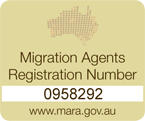Life Scientists (nec) - ANZSCO 234599
- Assessment Authorities: VETASSESS
This occupation group covers Life Scientists not elsewhere classified. Occupations in this group include: Animal Behaviourist, Parasitologist, Pharmacologist (Non-clinical), Toxicologist.
Life Scientists nec may perform the following tasks:
- designing and conducting experiments, making observations and measurements, researching information, analysing data, preparing or supervising the preparation of laboratory reports and scientific papers, presenting findings at scientific meetings and conferences, and supervising the work of staff
- studying the forms and structures of bodily organs and tissues by systematic observation, dissection and microscopic examination
- investigating the chemical structure and function of living cells and their isolated components, organs and tissues in humans, animals, plants, and micro-organisms
- examining micro-organisms, such as bacteria, fungi, yeast and their enzymes, and using the knowledge gained to create and develop new, and improve existing, products, materials and processes
- investigating the effects of environmental factors, such as rainfall, temperature, sunlight, soil, topography and disease, on plant growth
- planning and undertaking experiments to study, measure and understand marine animals and plants
- studying the growth and characteristics of micro-organisms, such as bacteria, algae and fungi, and the effects they have on plants, animals and humans to develop medical, veterinary, industrial, environmental and other practical applications
- investigating the interrelationships between animals in their natural surroundings, in captivity and in laboratories
This occupation belongs to Medium and Long-term Strategic Skills List (MLTSSL). MLTSSL is the occupational demand list which is in high demand across various states and territories of Australia.
If your occupation is on MTSSL, you may be eligible to apply for the following visa subclasses:
- Skilled independent ( Subclass189)
- Skilled Work Regional (Provisional) visa (subclass 491) - Family nominated
- Skilled Work Regional (Provisional) visa (subclass 491) - State or Territory nominated
- Employer Nomination Scheme (subclass 186)- Direct Entry and Temporary Residence Transition streams
- Skilled Nominated visa (subclass 190)
- Training visa (subclass 407)
- Temporary Graduate visa (subclass 485)– Graduate Work
- Temporary Skill Shortage visa (subclass 482) Medium-term stream
- Skilled Employer Sponsored Regional (Provisional) visa (Subclass 494)
Are you Eligible to Live and Work in Australia as a Life Scientists?
Life Scientists is classified as Group A occupations by Vetassess. The criteria for skills assessment of Group A occupations is to hold qualification(s) assessed at Australian Bachelor degree or higher degree with a highly relevant field of study and at least one year of post-qualification highly relevant employment in the last five years.
According to Vetassess, nomination of the “not elsewhere classified” (nec) occupation requires applicants to hold qualifications and employment which do not better fit under any other ANZSCO code. The tasks performed should also match the level, nature and general employment content of both the minor and unit group description for this occupation. Qualifications in Food Science and Technology and/or employment in food testing laboratories will not be considered positively for this occupation.
If you wish to check your eligibility to migrate permanently to Australia as a Life Scientists, please fill out the below assessment form. The assessment is free. After submitting the form, a registered migration consultant will look into the information and advise you of the outcome of the assessment via your email address.





